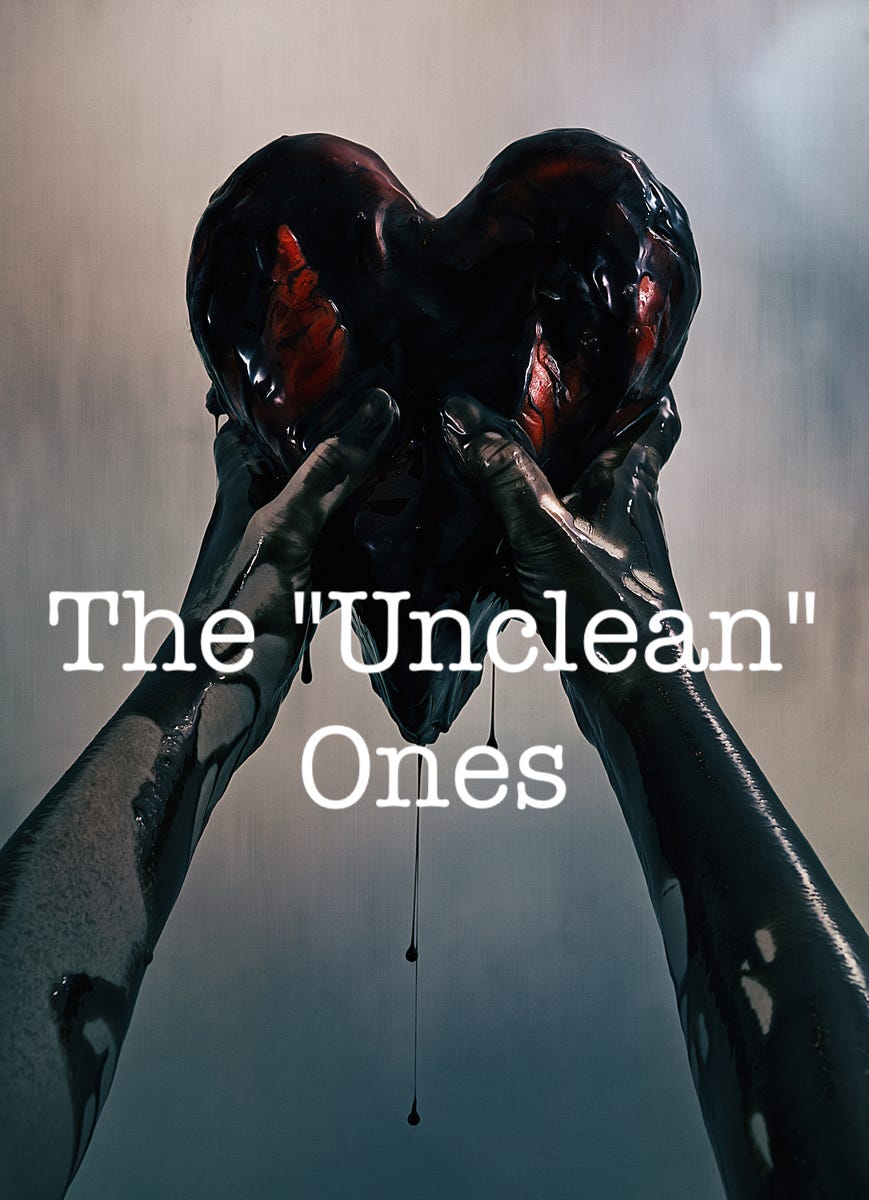The "Unclean" Ones
It is a revelation of our true selves when we discover just who is considered "unclean" in our lives.
Christ is risen!
“Oh, that’s nasty!” She had never seen anyone eat escargot before, and I had to confess, I agreed with her. But my dear friend who ordered it had a look of sheer joy on his face as he ate what he considered a delicacy. Sorry, I don’t get the attraction.
But that’s what makes life so full and joyous: the endless variety of tastes and preferences of different people who like different foods. Besides, some folks don’t understand why we Southerners prefer black-eyed peas and cornbread. Unfortunately, sometimes, our love for particular cuisines also shows up in prejudice against people who are not like us.
It is truly powerful to realize that the necessary insight that gives us the ability to discern can, if not kept healthy through humility and love, become the illness of prejudice and tribalism.
Look at our lesson today in Acts 10:1-16:
IN THOSE DAYS, at Caesarea there was a man named Cornelius, a centurion of what was known as the Italian Cohort, a devout man who feared God with all his household, gave alms liberally to the people, and prayed constantly to God. About the ninth hour of the day he saw clearly in a vision an angel of God coming in and saying to him, “Cornelius.” And he stared at him in terror, and said, “What is it, Lord?” And he said to him, “Your prayers and your alms have ascended as a memorial before God. And now send men to Joppa, and bring one Simon who is called Peter; he is lodging with Simon, a tanner, whose house is by the seaside.” When the angel who spoke to him had departed, he called two of his servants and a devout soldier from among those that waited on him, and having related everything to them, he sent them to Joppa. The next day, as they were on their journey and coming near the city, Peter went up on the housetop to pray, about the sixth hour. And he became hungry and desired something to eat; but while they were preparing it, he fell into a trance and saw the heaven opened, and something descending, like a great sheet, let down by four corners upon the earth. In it were all kinds of animals and reptiles and birds of the air. And there came a voice to him, “Rise, Peter; kill and eat.” But Peter said, “No, Lord; for I have never eaten anything that is common or unclean.” And the voice came to him again a second time, “What God has cleansed, you must not call common.” This happened three times, and the thing was taken up at once to heaven.
This is a pivotal moment in the history of the Christian Faith. A Gentile, but not just any Gentile; a Roman Centurion, one of the soldiers who were part of the occupying army of the Empire, wanted to hear the message of St. Peter. You have to understand that an observant Jew wouldn’t even consider coming under the same roof as a Gentile, especially a Roman soldier who was a leader in the Empire’s army. It just wasn’t done. And mainly because doing so made the Jews ceremonially unclean for Temple worship. So, God had to do a little work in Peter’s heart so he’d be ready for the challenge ahead when Cornelius’ servants arrived on Peter’s doorstep!
The Lord used a dream to show Peter that what God calls “clean” is clean. Period. St. Peter had to have a clear message from God that what the Jews considered “unclean” wasn’t the same anymore. Now God’s grace was going to extend to even strangers and even enemies to boot! Notice it happens three times that Peter is commanded to eat foods that are considered “unclean” by the Jewish kosher laws. The significance of the three times has everything to do with the old saying, “Third time’s the charm.” God repeats Himself three times to Peter so there would be no doubt about the dream's meaning. And the results of Peter’s humility and bravery in obeying this command will change the face of religion for humanity!
St. John, the Russian of Evia, was a hero of the Faith who knew firsthand the ugly consequences of prejudice. He was captured by the Ottomans when the Russians were beating back the invaders in 1711 AD. He was sold into slavery, as was the common practice in Muslim society for prisoners of war. Since John was a Christian, his status as a slave was also a mark of how Christians were viewed in that society. John served his master with faithfulness and remained a committed Christian despite the many enticements of the Muslims to him to abandon his Faith. He was a miracle worker through his prayers, and he reposed in peace in 1730 AD. His incorrupt relics are enshrined in a church in Greece.
Today, are there people you consider “unclean” or unacceptable simply because of where they were born or who their parents are? Do you harbor negative thoughts about this group or that group because of the color of their skin or their cultural background, language, or even religion? Perhaps it’s time to see beyond these superficial traits to the heart of another person created in God’s image and really embrace what it means to live a Normal Orthodox life!
P.S. He that has called you from earth unto the heavenly abodes, does even after your death keep your body unharmed, O righteous one; for you were carried off as a prisoner to Asia, wherein also, O John, you did win Christ as your friend. Wherefore, do you beseech Him that our souls be saved.






